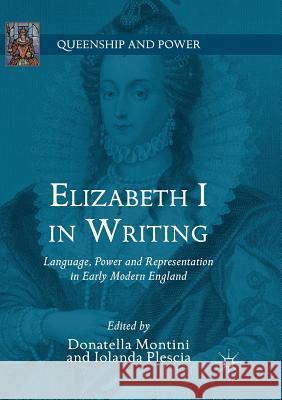Elizabeth I in Writing: Language, Power and Representation in Early Modern England » książka
topmenu
Elizabeth I in Writing: Language, Power and Representation in Early Modern England
ISBN-13: 9783030101350 / Angielski / Miękka / 2019 / 254 str.
Kategorie BISAC:
Wydawca:
Palgrave MacMillan
Seria wydawnicza:
Język:
Angielski
ISBN-13:
9783030101350
Rok wydania:
2019
Wydanie:
Softcover Repri
Ilość stron:
254
Waga:
0.33 kg
Wymiary:
21.01 x 14.81 x 1.47
Oprawa:
Miękka
Wolumenów:
01
Dodatkowe informacje:
Wydanie ilustrowane











